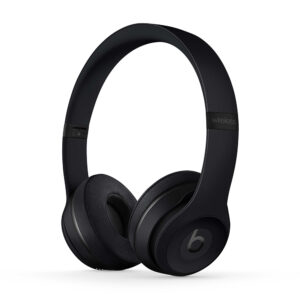Episode 5
- At the beginning of this episode, Krukowski asserts, “the marginal-the rejected-the repressed-is whatever the powerful have decided is of no use at the moment.” What does he mean by this statement? He goes on to ask, “But might it [the marginal-the rejected-the repressed] not be a key to alternate approaches-to art, to society-to power itself?” (“Marginalized” is an adjective that describes a person, group, or concept that is treated as insignificant or peripheral.)
What is he trying to get at with this question? How does music indicate the differences between the powerful and the marginalized?
Krukowski asserts, “the marginal-the rejected-the repressed-is whatever the powerful have decided is of no use at the moment.” music which is outdated society decided it to no more popular or exist in the market. So, with the demand of time music has changed and the interest of people . Thus, music with time can become unfamiliar, outdated and no longer relevant in a society. Therefore, the audience has a power to control the music. Krukowski refers to power as the audience, corporations and musicians for making the decision on what should be played and will be the next.
How are the music listening experiences enabled by Forced Exposure different from those that Paul Lamere is working on with platforms like Spotify?
Force exposure is listening to everything . There is no way to skip or the way to choose the songs you want . It is a long process. However, Paul Lamere works on platforms, like spotify is a design recommendation program for the Echo Nest , a division of spotify. So instead of having to scroll through millions of songs to figure out what you want to play you just hit a play button and it plays the right song for you. Digital music companies like Spotify, Apple Music,and Pandora want to work with the entire universe of available music. Forced Exposure’s 50,000 titles are a drop in the ocean for them. Next ,Paul Lamere recommends algorithms, which has become a pretty amazing place. Spotify’s “Discover” feature, and its predictions of musical tastes are so accurate can be unnerving.
- What distinctions does Krukowski draw between being “surprised” by music and “discovering” music? What are the differences between these experiences and according to Krukowski, why are they important?
Krukowski explains surprise is something that you are familiar with or known before. If you know in advance that it is not surprise and surprise is not really a helpful thing. He explains with an example of google and Facebook that why we are not surprised. Google wants to “surprise” us when we use it to search for something? Similarly, Facebook wants to “surprise” us when we look for our friends? Not at all they want us to find what we are already comfortable with. Surprise is not the same as “discovery”.Discover is the opposite of “surprise” ; it is more about what is a meaningful signal for each of us.
Discovering is clear for what we are looking or searching for. Discovering music isn’t as usual as we used to hear before. In the episode Krukowski also has his own experience of discovering music “Ghost” by the Forced Exposure.
Episode 6
- According to Krukowski, what is noise? What is signal? Why are these distinctions important?
According to krukowski noise means probably the signal that you are not interested and so a lot of what we do as ear surgeons is to try to amplify the signal, and decrease the noise. He further added, sound in terms of signal and noise in the recording studio. Although, signal and noise are always joined together in the analog world. These are distinctions important because digital allows the boosting of signal without the boosting of noise. Digital signal no noise on it from the medium -no surface noise like an LP, no tape hiss like a cassette, no static like on the radio so, if volume is turned up it gives more volume. In the digital audio world, everything can be louder than everything else. There is no noise to restrain the signal.
2.What central idea about noise does this episode convey? Why is it significant?
The central idea of the episode’s message about noise is that if we are not interested. For example, when I am doing my assignment and next to my side my sister asks me something that I want to hear: that’s a signal, and everything else in the room is noise. But then something new at the television interests me as I am eavesdropping, that voice becomes a signal, and whatever is being said by my sister is now the noise. It is significant because signals reduce noise. We are very skilled at shifting our attention from noise to signal, focusing and refocusing on different sounds in the environment, and shutting out others. Therefore, musicians use digital signals to reduce the noise. We cannot control the noise because it is unavoidable.
- How does this episode relate to other episodes?
This episode talks about the noise and signal which reflect the previous episode because each episode has illustrated the concept of noise. In the analog recording the elasticity of time is one good example of noise.In analog recording what is done is done there was no replay. Similarly, in the episode 2 “space” Krukowski represents the logical use of cellphones and headphones to eliminate the noise and make space in the crowd. It is a demand of today’s society to use earphones or headphones to eliminate the noise and to get the signals. Consequently, the musicians and digital corporations use the digital audio to reduce noise. Because they make sounds and signals perceivable to the audience. In conclusion, noise is probably the signal that we don’t want or either interested.




